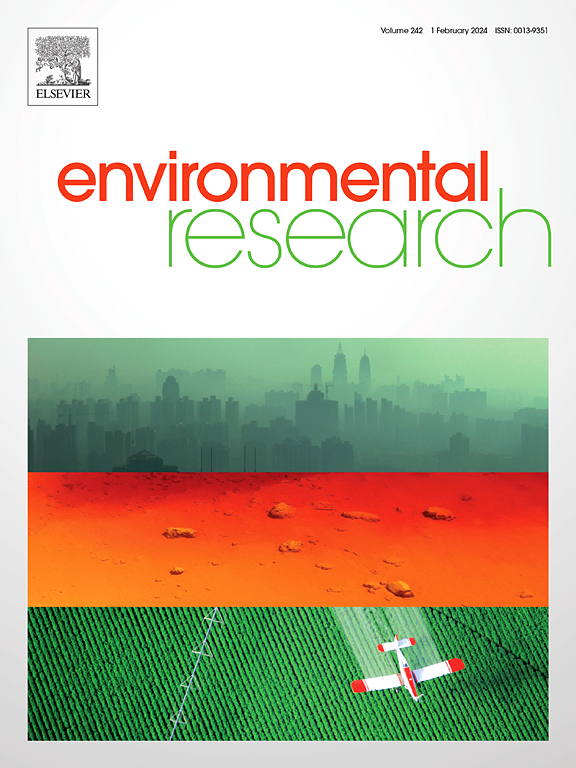高盐度和波动C/N比条件下,fe3o4介导的好氧颗粒污泥调控:海产品加工废水处理的机制和意义
IF 7.7
2区 环境科学与生态学
Q1 ENVIRONMENTAL SCIENCES
引用次数: 0
摘要
针对好氧颗粒污泥(AGS)在处理高盐度、C/N波动的海产品加工废水中表现不佳的问题,本研究探索了外源Fe3O4投加策略来刺激胁迫反应。结果表明,在盐度为35 gNaCl/L时,1.5 g/L Fe3O4可刺激AGS分泌更多疏水芳香蛋白和粘性多糖,C/N比值由10先增大到20,再减小到10和5,有效抑制了细菌群落从颗粒中脱落。电子传递效率的提高保证了微生物的高代谢率。同时,谷氨酰胺杆菌和铁杆菌的富集在高盐和波动C/N胁迫下发挥了重要作用。研究发现,Fe3O4上调了与氮转化相关的功能基因的表达。本研究为提高AGS在海产品加工废水处理中的稳健性提供了新的见解。本文章由计算机程序翻译,如有差异,请以英文原文为准。

Fe3O4-mediated regulation of aerobic granular sludge under high salinity and fluctuating C/N ratio: Mechanisms and implications for seafood processing wastewater treatment
To address the poor performance of aerobic granular sludge (AGS) in the treatment of seafood processing wastewater with high salinity and fluctuating C/N ratio, this study explored an exogenous Fe3O4 dosing strategy to stimulate the stress response. The results showed that 1.5 g/L Fe3O4 stimulated the secretion of more hydrophobic aromatic proteins and viscous polysaccharides in AGS at a salinity of 35 gNaCl/L and the C/N ratio increased from 10 to 20 and then decreased to 10 and 5, effectively inhibiting the shedding of bacterial consortia from granules. The improved electron transport efficiency guaranteed a high metabolic rate for microorganisms. Meanwhile, the enrichment of Glutamicibacter and Ferruginibacter played an important role in response to high salt and fluctuating C/N stresses. Fe3O4 was found to upregulate the expression of functional genes associated with nitrogen conversion. This study provided new insights to improve the robustness of AGS in seafood processing wastewater treatment.
求助全文
通过发布文献求助,成功后即可免费获取论文全文。
去求助
来源期刊

Environmental Research
环境科学-公共卫生、环境卫生与职业卫生
CiteScore
12.60
自引率
8.40%
发文量
2480
审稿时长
4.7 months
期刊介绍:
The Environmental Research journal presents a broad range of interdisciplinary research, focused on addressing worldwide environmental concerns and featuring innovative findings. Our publication strives to explore relevant anthropogenic issues across various environmental sectors, showcasing practical applications in real-life settings.
 求助内容:
求助内容: 应助结果提醒方式:
应助结果提醒方式:


